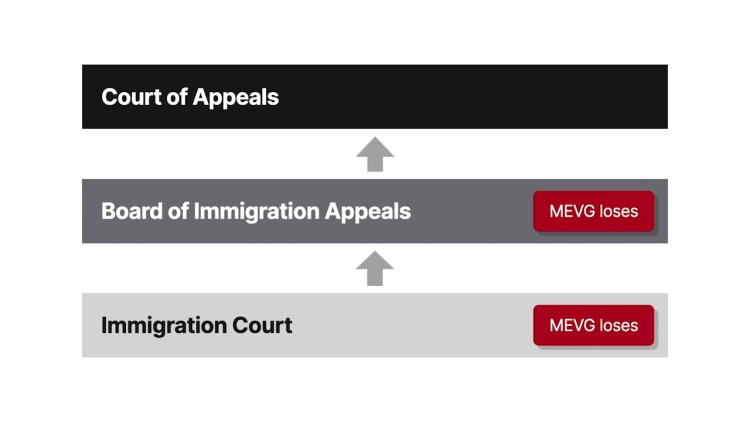Matter of M-E-V-G
Board of Immigration Appeals
26 I. & N. Dec. 227 (BIA 2014)
- Written by Darya Bril, JD
Facts
MEVG (defendant), a native of Honduras, applied for asylum in the United States. MEVG claimed that he had suffered persecution by a Honduran gang because MEVG belonged to a youth group that refused to join gangs. The Immigration Judge denied his application, and the Board of Immigration Appeals (the Board) (plaintiff) affirmed. The Third Circuit granted MEVG’s petition for review, then remanded the case for further consideration of arguments regarding membership in a particular social group. On remand, the Board held that MEVG did not establish persecution “on account of a protected ground” and that he did not show that his proposed social group possessed the required elements of “particularity” and “social visibility.” To establish an asylum claim under § 101(a)(42) of the Immigration and Nationality Act, an applicant must demonstrate that he suffered persecution on account of “[…] membership in a particular social group […].” The phrase “membership in a particular social group” is not defined. The Board first interpreted the term “particular social group” in Matter of Acosta, 19 I. & N. Dec. 211 (1985). There, the Board held that the group in question must share a common, immutable characteristic to be deemed a particular social group. After Acosta, the Board refined the definition to include the concepts of “social visibility” and “particularity.” However, here, the Third Circuit remanded MEVG’s case, ruling that the Board had not articulated a reason for these stated requirements of particularity and social visibility, but nevertheless advised that the Board may add to or alter its definition of “particular social group.”
Rule of Law
Issue
Holding and Reasoning (Guendelsberger, Board Member)
What to do next…
Here's why 907,000 law students have relied on our case briefs:
- Written by law professors and practitioners, not other law students. 47,100 briefs, keyed to 996 casebooks. Top-notch customer support.
- The right amount of information, includes the facts, issues, rule of law, holding and reasoning, and any concurrences and dissents.
- Access in your classes, works on your mobile and tablet. Massive library of related video lessons and high quality multiple-choice questions.
- Easy to use, uniform format for every case brief. Written in plain English, not in legalese. Our briefs summarize and simplify; they don’t just repeat the court’s language.





